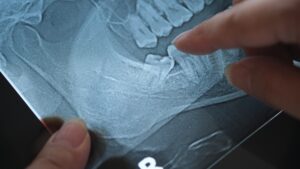The Risks of Delaying Wisdom Teeth Extraction: Evidence-Based Perspectives
Removing wisdom teeth is a common procedure for young adults, yet debates surrounding the timing of extraction persist. Should you act promptly upon a dentist’s advice, or is delaying “just to see” a prudent path? This blog addresses the historical, medical, and scientific context behind timely wisdom tooth extraction. It elucidates the risks of delay, the biological processes involved, and why early intervention is often the clinically rational choice.
Understanding Wisdom Teeth and Their Clinical Significance
What are Wisdom Teeth?
“Wisdom teeth” refer to the third molars, typically emerging between the ages of 17 and 25. Though once essential for a diet of roots, leaves, and raw meat, dietary evolution and improved oral hygiene have rendered these molars functionally redundant for most individuals in industrialized societies.
The Evolutionary and Anatomical Context
Historically, evolutionary pressures favored larger jaws accommodating more teeth. However, modern diets and jaw structures have changed. Anthropological studies note that approximately 5–37% of individuals lack one or more wisdom teeth congenitally. For those who do develop them, third molars commonly erupt at angles, partially emerge (partial impaction), or remain entirely submerged (full impaction).
Clinical Indications for Extraction
Dentists recommend wisdom tooth extraction in the presence of disease, pain, or evidence of future complications. These indications may include:
- Impacted teeth (unable to erupt normally)
- Repeated infections or wisdom teeth pain
- Orthodontic concerns
- Evidence of cysts, tumors, or bone loss
- Caries or fractures inaccessible to restoration
The Consequences of Delay
Pathogenesis of Impacted Wisdom Teeth
Impacted wisdom teeth create an environment prone to infection and crowding. The wisdom tooth’s position facilitates accumulation of food debris and bacteria, which conventional oral hygiene often cannot eliminate. This can progress to:
- Pericoronitis (infection of the gum covering a partially erupted tooth)
- Caries in adjacent teeth
- Cyst or abscess formation
Medical literature documents that impacted wisdom teeth are a persistent source of chronic low-grade infection, often asymptomatic until advanced.
Increased Risk of Dental Infection
The risk of infection rises exponentially the longer an impacted tooth remains. A study published in the British Journal of Oral and Maxillofacial Surgery (2012) found that retained, at-risk wisdom teeth significantly increased the odds of dental abscess and even bone or systemic infection.
Complications of such infections include:
- Cellulitis or spreading soft tissue infection
- Severe swelling, pain, and trismus (difficulty opening the mouth)
- Ludwig’s angina (a potentially fatal neck infection)
- Secondary sinus involvement
Complications Affecting Adjacent Teeth
A wisdom tooth pressing against the neighboring second molar can compromise root structure and lead to caries or irreversible bone loss at the contact site. These secondary effects are both preventable and well-documented in longitudinal dental studies.
Delayed Healing and Increased Surgical Complexity

Healing from wisdom teeth extraction in older patients, or after infection/cyst formation, is demonstrably more prolonged and complex. The surrounding bone becomes denser with age, and the wisdom tooth’s roots often grow longer and more curved. This not only complicates the surgical procedure but also raises the risk of:
- Nerve injuries (notably the inferior alveolar and lingual nerves)
- Jaw fracture
- Excessive bleeding
- Poor wound healing
A multicenter analysis published in the Journal of Dental Research (2017) affirms that healing from wisdom teeth extraction correlates strongly with patient age and pre-existing oral health status.
Why Timely Wisdom Tooth Extraction Is Recommended
Preventive Care as a Standard of Practice
Leading dental associations advocate for timely extraction based on large cohort studies evaluating patient outcomes. Early removal during adolescence or young adulthood is associated with:
- Simpler procedures
- Reduced postoperative complications
- Faster and more complete healing
The American Association of Oral and Maxillofacial Surgeons explicitly recommends evaluation of wisdom tooth position and extraction before the roots are fully formed and bone becomes denser.
Avoidance of Emergency Surgery
Unlike planned outpatient extractions, emergency surgery for infected wisdom teeth is more traumatic, often associated with greater anesthesia risk, longer hospital stays, and need for intravenous antibiotics.
Minimizing the Burden of Wisdom Teeth Pain
Chronic or intermittent wisdom teeth pain imposes a significant burden on young adults, impacting everything from nutrition and sleep to academic and professional participation. Timely extraction resolves this preventable source of morbidity.
Healing from Wisdom Teeth Extraction
Typical Recovery Timeline
For healthy young adults, healing from wisdom teeth extraction generally follows this timeline:
- First 24–72 hours: Swelling and discomfort peak
- Day 4–7: Significant reduction in swelling and pain
- Day 7–14: Gum tissue closes; normal diet resumes
- 4–6 weeks: Bone healing progresses steadily
Delayed extraction in the presence of infection or anatomical complexity can extend this course, leading to secondary visits and interventions.
Optimizing the Healing Process
Evidence-based strategies to support recovery include:
- Ice packs and elevation to reduce swelling
- Nonsteroidal anti-inflammatory drugs (NSAIDs)
- Prescribed antibiotics if indicated
- Gentle oral rinses with saline or chlorhexidine
Failure to adhere to postoperative care can potentiate risks, particularly “dry socket,” a painful condition more prevalent in complicated or infected wisdom tooth extraction sites.
The Real Risks of Not Acting
Case Study Analyses
A review of clinical cases in the International Journal of Oral Surgery (2020) demonstrates that the risk of major complication rises substantially with delay. Cases of infected wisdom tooth extraction requiring hospitalization, surgical drainage, and long-term sequelae are not uncommon.
Myths Versus Evidence
There exist persistent myths regarding “holding off” on intervention if wisdom teeth are not actively causing discomfort. Scientific consensus refutes this, emphasizing that asymptomatic status does not equate to absence of pathology.
What to Expect when Planning Extraction
A systematic clinical evaluation is essential. Your dentist will assess:
- Panoramic radiographs to evaluate location, angulation, and root formation
- Risks based on adjacent anatomy (nerves, sinuses)
- Personal medical history
Engaging in this process early allows for extraction under controlled, elective circumstances, maximizing safety and minimizing duration of convalescence.
If you’re in need of wisdom teeth extractions, get in touch with us at Clearwater FL Dentistry. We know dental surgeries can be daunting, so we provide the upmost care throughout the whole process, ensuring you can confidently receive the treatment you need.

 Posted by Admin
Posted by Admin